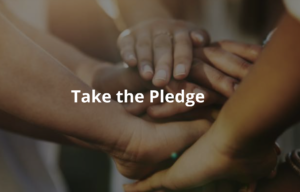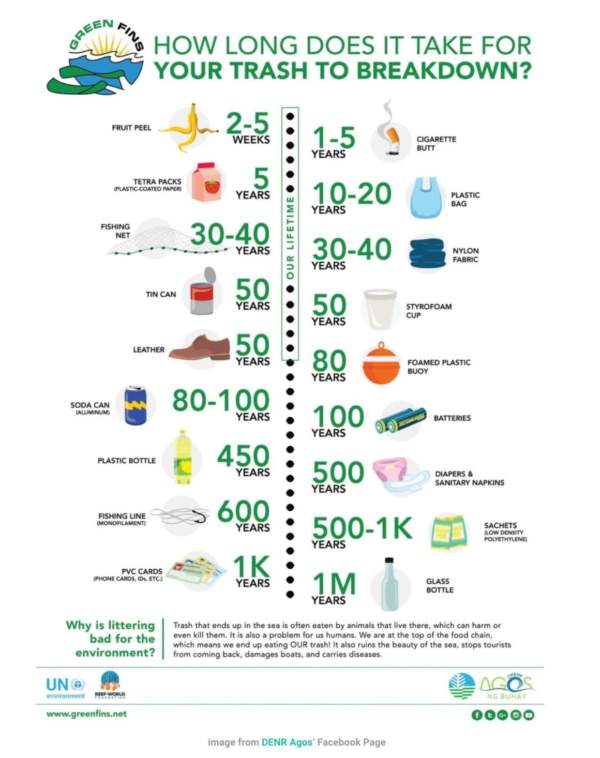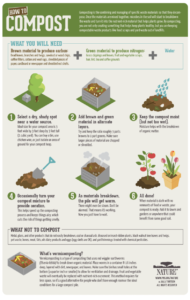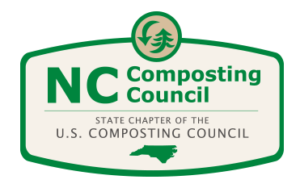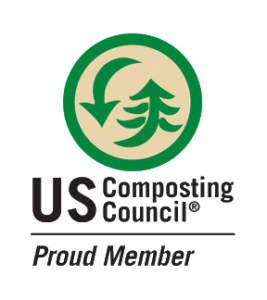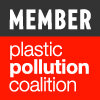Zero Waste Kids
This page was created by a local student and Girl Scout as part of her Girl Scout Gold Award!
What is Zero Waste?
Think of Zero Waste as a goal to always being ‘Waste Conscious’. Becoming aware of the waste that we create, combined with the conscious effort to reduce it, is an empowering step to the reduction of overall waste in our communities. By moving ‘Toward Zero Waste’ together, we can decrease landfill space, our carbon footprint on the Earth, and have a positive effect on the environment and our future.
Why is it Helpful?
Zero waste conserves natural resources and materials along with reducing pollution from extraction, manufacturing, and disposal. Moving toward zero waste can also help establish a community as everyone can work together to accomplish a goal.
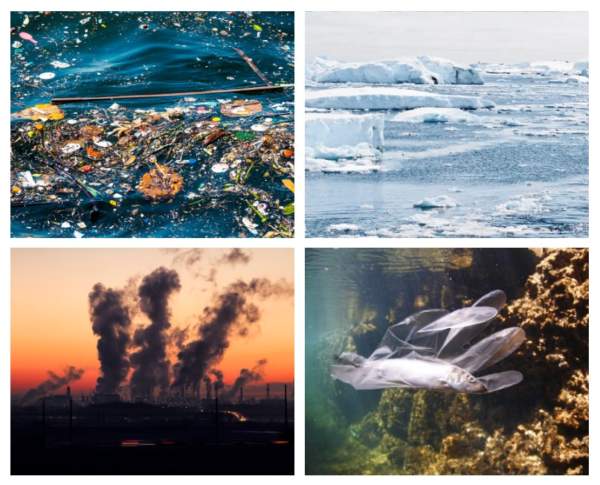
Climate Problem:
The build-up of greenhouse gases in our atmosphere is causing climate change. Greenhouse gases are gasses such as carbon dioxide, water vapor, methane, nitrous oxide, and others that are trapped in our atmosphere. These trapped gases act like a blanket, shutting in the sun’s warmth near the earth’s surface, and affecting the planet’s climate. We also produce a lot of trash and waste which pollutes our earth. The trash that we make adds more greenhouse gases into the atmosphere and harms our planet. Our waste builds up and is either burned or dumped into the ocean which harms animals and destroys our resources. Going toward zero waste can help solve this problem.
PLASTIC PROBLEM
We use a lot of single-use plastics in our everyday life. These plastics cause lots of waste and pollute our oceans. If we cut down our usage of single-use plastics we can cut down a big portion of our waste as well as keep our oceans cleaner.
Plastics 101
TIPS
It’s easy to start moving toward zero waste. There are many things you can do to get started!
Local Produce: Try buying local produce either from farmers markets or farms themselves. There may be many cool farms around your area such as Ninja Cow Farms.
Composting: Is a great way to limit waste and can help your plants grow. Click here to get tips and learn more about composting.
Consider Your Materials: Try to buy materials you can reuse instead of ones that are disposal. Such as cloth towels instead of paper. Talk to your parents about the benefits of reusable materials and why they are important.
Presents: Ask for gifts that produce little waste. Say no to party favors and only ask for things that are necessary. This can help you reduce plastic waste
Natural Remedies: Ask/help your parents to make natural remedies instead of purchasing items such as soap, lip balm, etc. You can also try to contact companies and ask them to change their packaging
Plastic Rule: Try to have a no-plastic rule at home in order to be mindful of product packaging and to cut down on plastic waste
Lunches: Ask your parents to pack your lunch in reusable packaging and try to limit the trash you throw away. If needed have a place to put your trash to bring home to compost. Fruits are good snacks that are healthy and do not produce much waste.
Every Tray Counts: This is a program where compost bins are implemented at school so kids can separate their waste into trash, compost, and recycling. Here is the link for more information. With permission from parents, you can talk to your principal or teacher and try to implement this program in your school. The school kit part provides resources your school can use.
Paper Assignments: Ask your teachers for digital assignments instead of worksheets to reduce paper waste. If this is not possible recycle or compost your worksheets at the end of the school year when you are finished using them.
Books: Instead of buying books, borrow them from the library or read them on a kindle or online. Books use up a lot of paper and cutting back can reduce paper waste. Swapping books with friends or contributing to a little free library is a fun way to reduce waste!
Spread Awareness: Tell your friends, classmates, and teachers about moving toward zero waste and encourage them to give it a try. The more people working towards zero waste the healthier our planet will be. You can even start a club to educate your friends about the environment and share helpful tips.
School Supplies: Try to but materials such as notebooks that are made from recycled materials. Try to use the same supplies such as backpacks and pencils for as many years as you can. When writing on paper use both sides of the paper to make the most use out of the paper.
Cloth Bags: Bring your own cloth bags to grocery stores instead of using the plastic or paper bags. Encourage your parents to keep one in their car at all times.
Utensils: If a restaurant uses plastic utensils bring your own reusable ones. You can also bring the plastic utensils home and reuse them instead of putting them in the trash. Use a reusable straw instead of a plastic one.
Second Hand: Buy/sell/use second-hand items. This prevents you from throwing away your clothes and can reduce the waste made by the production of clothes. Second-hand clothes can also be cheaper which is beneficial.
Multipurpose: Instead of buying something new each year, buy/ask for/accept things you can use now and in the future. This can include clothes that are a little big or jewelry that lasts a long time.
No Freebies: Do not accept unecessary free things that are offered as they can end up becoming waste. For example, do not accept free things from the dentist or doctors that you do not need.
Apps: With your parent’s permission, you can download apps to help the environment. Some useful apps are Litterati and Plastic Score. You can also visit the Green Business Directory
Town Council Meetings: Your town probably has committees such as the Environmental Action committee that you can attend. This information should be on your town’s website. Through these meetings, you can learn what your town is doing and how you can help.
Organizations: You can research, learn, and join many organizations relating to the environment. Through these organizations you can volunteer or spread awareness. A few examples are the Sunrise Movement and the Sierra Club.
Write: You have power through your words and opinions. If you want to change certain things in your community, you can write to your town council or house representative. With your parents’ permission go here to learn who your house representative is.
Host: You can host different activities such as litter sweeps, book clubs, discussions, etc. with your community. Spreading awareness and cleaning up your community can help reduce waste.
Social Media: Social Media can help spread awareness either throughout the world or just in your community. If you have permission to use it, spread credible information through platforms letting people know about the problem and what they can do to help.
Reach Out: Sometimes our favorite brands and products use materials that create lots of waste. With your parents’ permission reach out to these companies and ask them to rethink their packaging. This way you can enjoy your favorite products without causing lots of waste.
Talking to your parents can be nerve-wracking. It can be hard to convince them to change their lifestyle and start buying different products. It can help to educate them and list the benefits of zero waste. If you research information, such as the average waste a person in the US produces a year (2,072 pounds), you can demonstrate the harmful effects of the waste we produce. Figuring out where our waste goes and how it affects our planet can help your parents understand the severity of our waste problem. After you explain the problem, talk about the benefits of moving towards zero-waste and the easy ways they can start.
Start off by introducing simple things like bringing cloth bags to the grocery store and bringing fruits for snacks at school. Then slowly add more activities such as composting or avoiding plastic wrapping. Make sure to include how this change will positively impact you and your family. If your family sees that you are passionate about zero waste they probably will give it a chance. Just be calm and confident and know that no matter the result you tried your best and did your part.
Below is a webinar we did discussing different ways to talk to your parents and peers.
COMPOSTING
Composting is a great way to reduce waste and can really help the environment!
This video shows why composting might be a good idea
Composting Steps
Materials:
- You can choose your composting style below:
- Compost Pile: Fencing like chicken wire and wood
- Compost Bin: A container with a lid and a drill
- Or you can buy your own outside compost bin
- Dead plant material such as twigs, newspapers, and dry leaves (These are called Brown Materials)
- Household waste such as vegetable scraps, grass clippings, eggshells, tea bags, and coffee grounds but no meat or dairy (These are called Green Materials)
- A layer of soil (better if it has earthworms)
- Hose
Instructions:
- If you are making your own compost bin: drill holes at the bottom of your container as well as few on the lid
- If you are making a compost pile: make a pile on the ground and surround it with fencing
- If you bought a compost bin: Put your compost bin in an area of sunlight that is easily accessible from your house.
- *Add water between each of the steps below*
- First add your dead plant material.
- Second add your household waste.
- After that add your soil
- Keep adding each layer in order until you fill the top of the bucket or reach a nice height for your pile
- Add water and Flip/stir the compost every couple of days.
Helpful Tips
- Keep a bin with a lid in your kitchen or bathroom so you can collect your waste and put it in a compost bin when it fills.
- For the best results try to create a ratio of 4:1 with 4 times more brown materials than green materials
- If your compost is smelling try to stir the compost more often and try to reach the ratio of brown materials to green materials.
- If your compost is becoming slimy or starts smelling like rotten eggs try adding more brown materials.
Can’t Compost at Home? Here are a few other options:
Sharewaste: If you live in an apartment it can be hard to compost. You may also be struggling to start your compost or feel overwhelmed by the idea. If so there is a website and app called share waste that you can use. With your parents, you can find people and places near you that are composting. They will list items that they are accepting for their compost and you can drop off your compost scraps there. If you have a successful compost you can also list your own and accept scraps from other people. Make sure to go on this website/app with a parent so they can approve it and participate with you.
Compost drop-off: Check your local county or city for a place to drop off your food waste. Here you can find where to compost in Wake County.
Compost Services: Check out compost pick up services in your area with a parent. These services can pick up compost from your front door but usually cost a certain monthly fee. Make sure to discuss with your parents to see what are the best options for your family.
ACTIVITIES
Here are some simple zero-waste activities you can do by yourself or with your friends and family
Here is a list of fun activities you can do to move towards zero-waste
Book List: you can start your own book club, introduce these books to your current book club, or just read these books for fun.
For more Entertainment such as podcasts, social media influencers, or even more books click here
Waste Challenge: With families and friends try to see who can produce the least waste in a certain amount of time (for example a week). You can make it more educational by making a trash audit. A trash audit is where you put all your trash in one place (a grocery bag) and see whats inside. Then you can go over what you throw and see how you can reduce it
Litter Sweep: Participate in or create your own litter sweep. Here are a few litter sweeps you can participate in:
Declutter: Do some spring cleaning even when it is not spring. Figure out what items and clothes you need and which ones you can donate. Having only the essentials can help you figure out what is important and decrease your waste.
Gardening: Planting a small or big garden can make a big impact. Plants help to naturally take away carbon dioxide from the atmosphere. They also help you reduce your waste as you can grow your own plants instead of buying them from the store. You can also start or participate in a community garden. You can help create a garden with your community and share the plants/vegetables you grow. Here are a few links to help you. Basic tips. Advanced tips.
Eco bricks: These are bricks you can make out of plastic. You can use them as a garden wall or anything you want. Gather and clean plastics that you can not recycle such as styrofoam, straws, plastic bags, etc. Then find a big bottle that you use a lot like soda bottles. Stuff your plastics in your bottle with a stick such as a chopstick. You can stuff plastics by color or just do it randomly. Make sure to really stuff your plastics inside and once you fill it to the top. Voila! An eco brick
Field Trips: Here are a few places you can go to learn where our waste goes and what people are doing to help the environment. Click the links to learn more
- Sonoco Recycling Center: This is a sorting center where you can see what happens to the things you recycle. Look at an education center
- South Wake Landfill: You can see how trash is handled at a landfill
- White Deer Park: There are a variety of environmental programs that you can choose to focus on
- Raleigh City Farm Tour: An urban farm where you can learn about farming methods and the value of farms to local areas
Some other tours to check out:
Want Some More?: Here is a great link that has games, activities, and information to be more environmentally friendly. Feel free to share it with your teachers and parents to spread awareness to your class and families!
Here are some videos to help reduce your waste
STORIES
Here are some stories and personal experiences of zero waste as well as some tips
What were some of your challenges?: The amount of waste I make in one day
How do you feel after moving towards zero waste?: Healthier and Cleaner
Do you have any tips?: Take small steps
If you would like to add your own experiences, stories, or tips to the website, feel free to fill in this google form with your parent’s permission.
GOALS
Here are some goals you can strive for to get you started or you can set your own
Spread the Word
Contact & Questions

About the Author:
Shriya, is currently a junior at UNC Chapel Hill. She has been a Girl Scout since 1st grade and created this page to earn her Girl Scout Gold Award. The Gold Award is the highest honor a Girl Scout can earn and receive. For her award, she created this kid’s page in order to raise awareness on zero-waste. The environment has always been a big passion of hers, and she is thrilled to be a small part of Toward Zero Waste. She believes this organization is making a positive impact on the environment, and is proud to help it in any way she can. Currently, Shriya serves as the youth board member at Toward Zero Waste.



